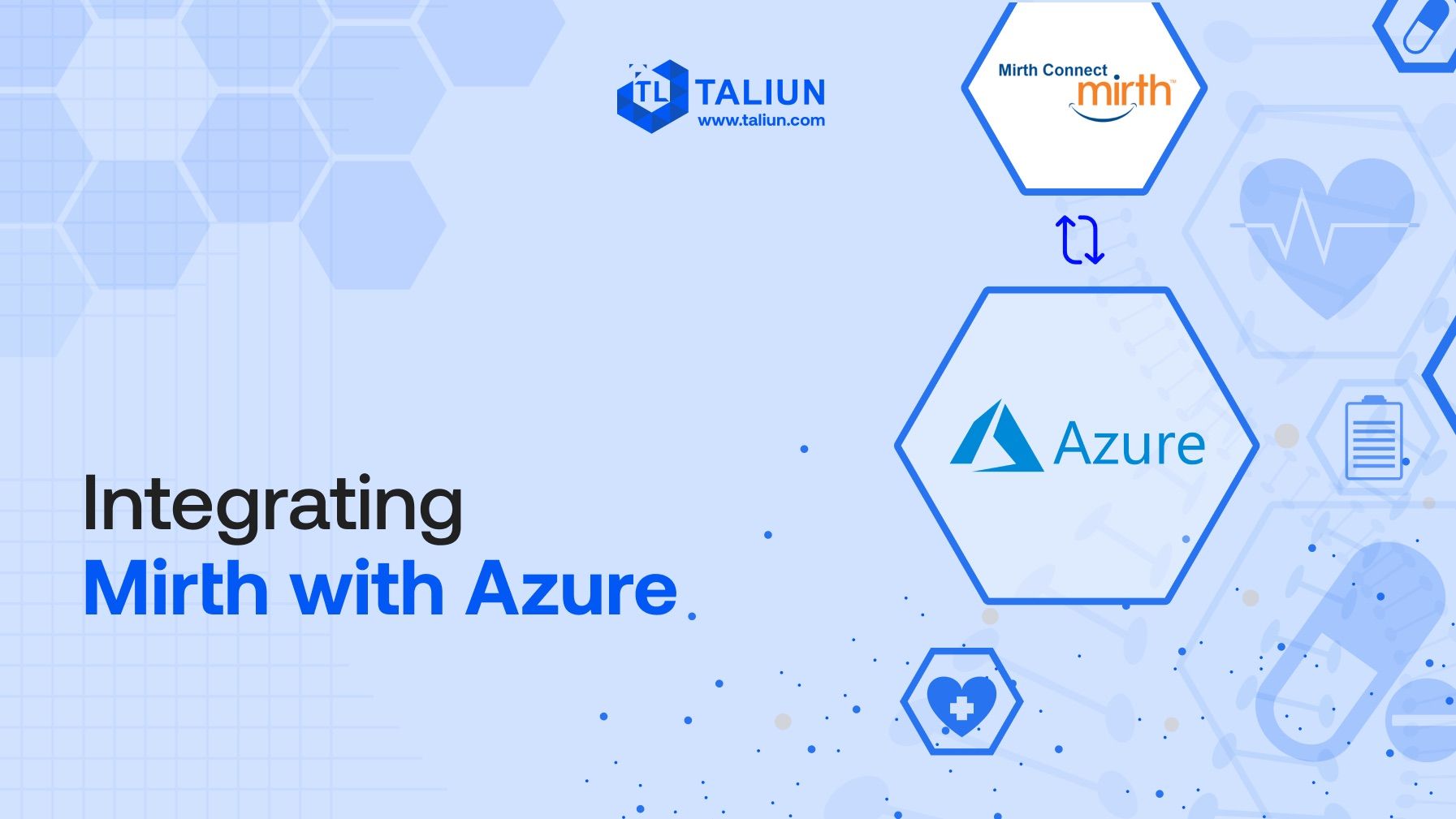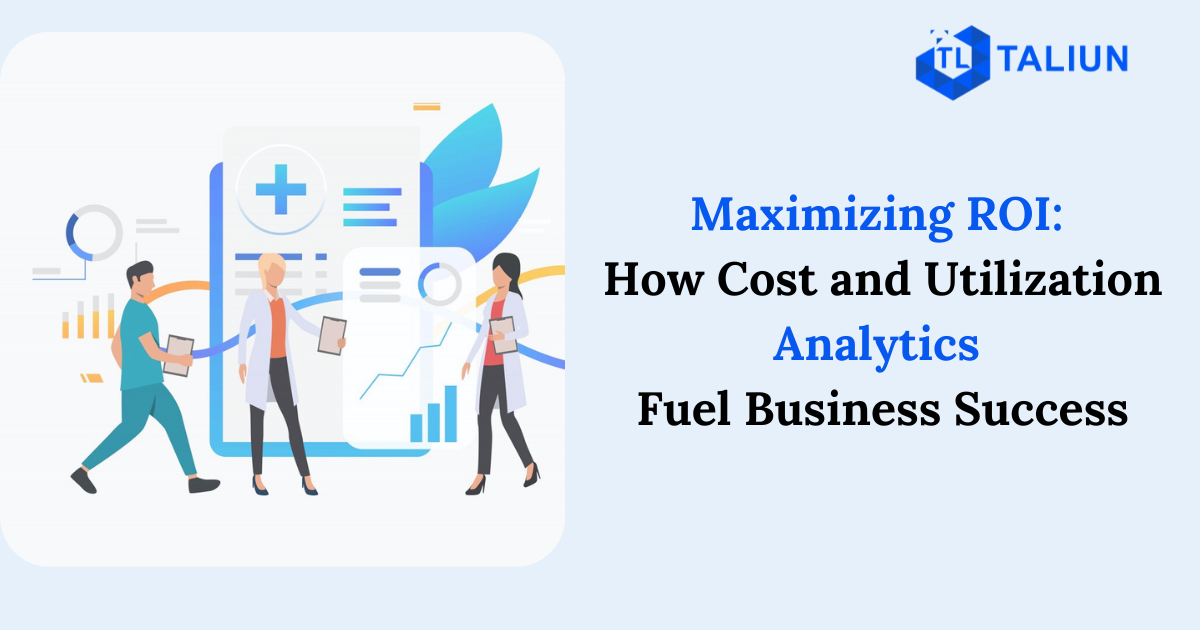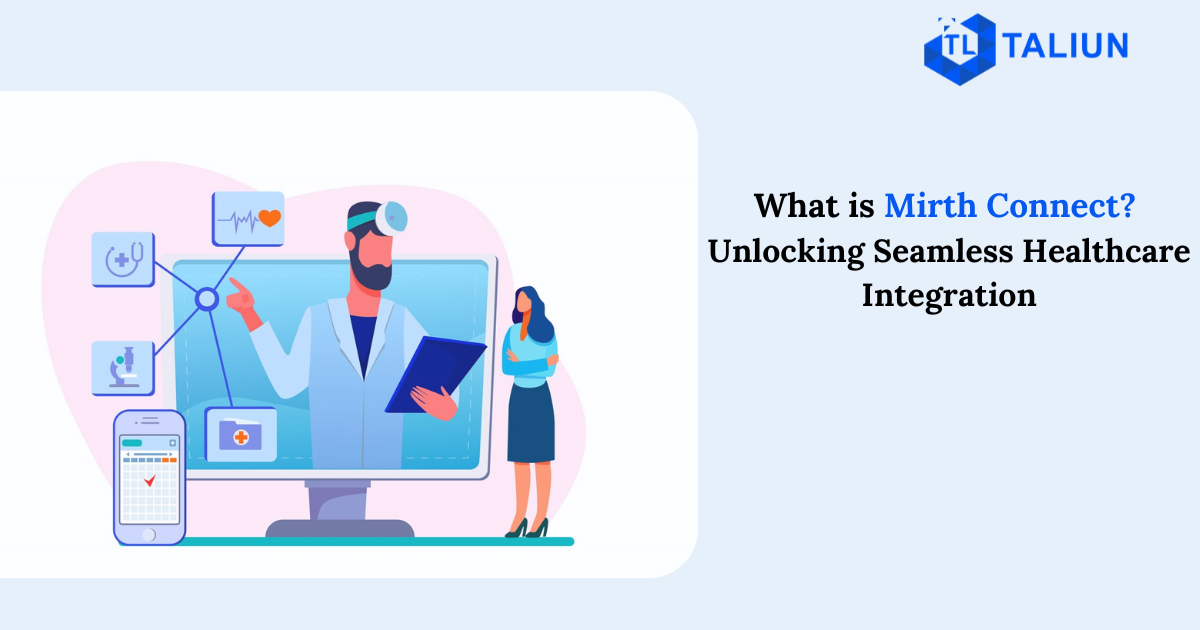Mirth Connect on Azure: Streamlining Healthcare Data Exchange

In the symphony of healthcare IT, the harmonious integration of systems plays a pivotal role in delivering efficient and effective patient care. Mirth Connect, now known as NextGen Connect, acts as a maestro in this orchestra, orchestrating the flow of healthcare information seamlessly between disparate systems. When this powerful healthcare integration engine meets the cloud capabilities of Microsoft Azure, the result is a symphony of scalability, reliability, and security, designed to elevate healthcare data exchange to new heights. Let's explore how integrating Mirth with Azure can transform the healthcare data exchange landscape, offering a blend of technical prowess and practical insights, all while keeping the tone professional, yet engaging.
The Prelude: Understanding Mirth Connect and Azure
Mirth Connect, a versatile healthcare integration engine, enables the customization and automation of data flows across healthcare systems, ensuring that critical patient information is accurately and efficiently exchanged. Microsoft Azure, on the other hand, is a cloud computing service known for its robustness, offering a wide array of services including compute, analytics, storage, and networking. The fusion of Mirth Connect's healthcare integration capabilities with Azure's cloud services opens up a world of possibilities for healthcare organizations.
First Movement: Benefits of Mirth on Azure
Scalability and Flexibility
Azure provides a scalable cloud environment for Mirth Connect, accommodating the ebb and flow of healthcare data demands. This means healthcare organizations can easily scale up or down based on their data processing needs, ensuring that the system remains both efficient and cost-effective.
Enhanced Security and Compliance
With patient data at its core, the healthcare industry demands the highest levels of security and compliance. Azure's compliance with industry standards and regulations, combined with Mirth Connect's secure data processing capabilities, offers a fortified solution that safeguards sensitive patient information.
Reliability and Uptime
Azure's robust infrastructure ensures high availability and disaster recovery capabilities for Mirth Connect deployments. This translates to minimal downtime and uninterrupted data exchange, a critical requirement for healthcare operations.
Simplified Management and Monitoring
Azure's management tools provide a unified dashboard for monitoring and managing Mirth Connect instances, streamlining administrative tasks and providing clear insights into data flows and system performance.
Second Movement: Implementing Mirth on Azure
Planning and Strategy
The first step involves a careful assessment of the healthcare organization's data exchange needs and compliance requirements. This phase sets the stage for a successful deployment by outlining the architecture, data flows, and integration points.
Deployment and Configuration
Deploying Mirth Connect on Azure can be achieved through Azure Virtual Machines or Azure Kubernetes Service (AKS) for containerized deployments. The choice between these options depends on the organization's scalability, management, and performance needs.
Security and Compliance Tuning
Leveraging Azure's security features, such as Azure Active Directory and Azure Security Center, along with Mirth Connect's encryption and user authentication capabilities, ensures that the deployment meets the strictest security and compliance standards.
Integration and Customization
Mirth Connect's flexibility allows for the customization of channels and scripts to meet specific integration requirements. This is where the magic of healthcare data exchange happens, tailoring the system to facilitate seamless data flows between EHRs, billing systems, and other healthcare applications.
Third Movement: Best Practices and Considerations
Continuous Monitoring and Optimization
Utilize Azure's monitoring tools to keep a pulse on the system's health and performance, ensuring that any potential issues are swiftly addressed and that the system is continually optimized for peak performance.
Regular Updates and Maintenance
Keep both Mirth Connect and the Azure environment up to date with the latest security patches and software updates. This not only secures the system but also ensures that you benefit from the latest features and improvements.
Training and Support
Invest in training for the technical team to fully leverage the capabilities of Mirth Azure. Additionally, consider engaging with professional support services to assist with complex deployments and troubleshooting.
Coda: The Future of Healthcare Data Exchange
Integrating Mirth Connect with Azure represents a forward-looking approach to healthcare data exchange, combining the best of healthcare integration capabilities with the power of the cloud. This powerful duo stands ready to address the growing demands for interoperability, security, and scalability in healthcare IT, paving the way for a future where seamless data exchange underpins the delivery of patient care. As healthcare organizations continue to navigate the complexities of digital transformation, the integration of Azure Mirth shines as a beacon of possibility, driving efficiency, innovation, and improved patient outcomes.
Know more about our services:
Mirth Connect on Azure: Taliun/mirth-connect-on-azure
Mirth Integration: Taliun/mirth-consulting
Mirth Connect on AWS:
Taliun/mirth-connect-on-aws
Mirth Connect on Google:
Taliun/mirth-on-google-cloud-platform
Subscribe to our Blogs
Contact Us
Thanks for subscribing! You'll now receive our latest blog posts straight to your inbox.
Please try again later.
Locations
US:
39899 Balentine Drive,Suite 200
Newark, CA 94560
Phone: +1-(408) 883 - 7902
India:
Ven Business Center I, First Floor, Baner - Pashan Link Rd, Pashan, Pune, Maharashtra 411021
Phone: +91 83293 46166
Copyright 2024 Taliun | Privacy Policy




